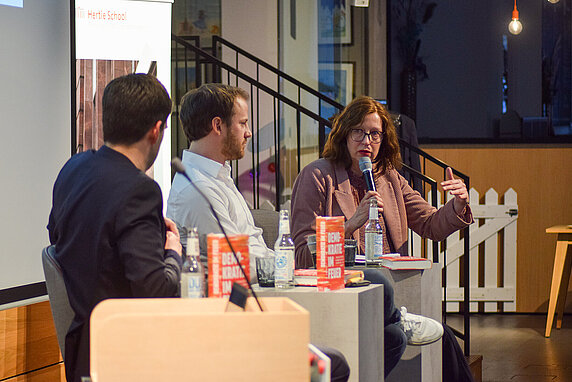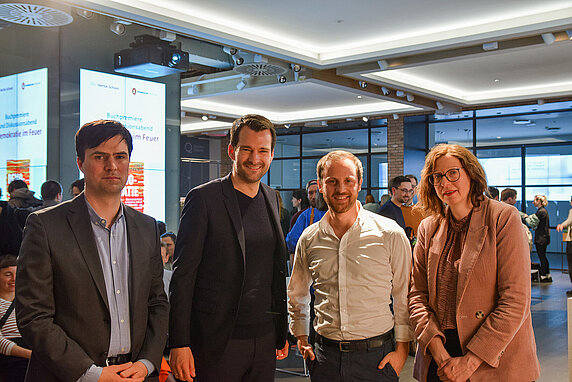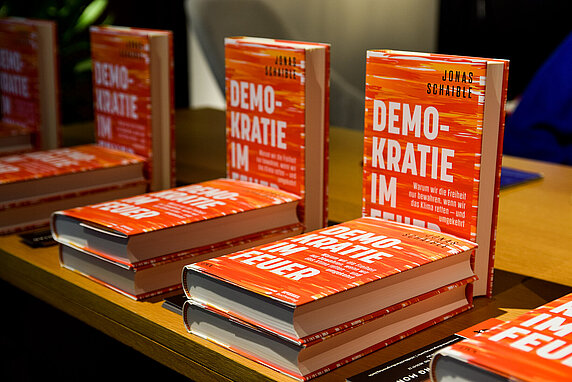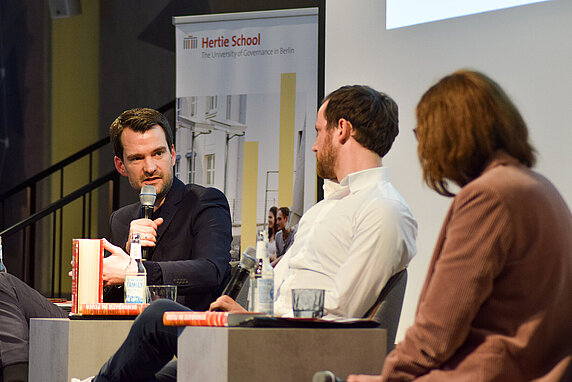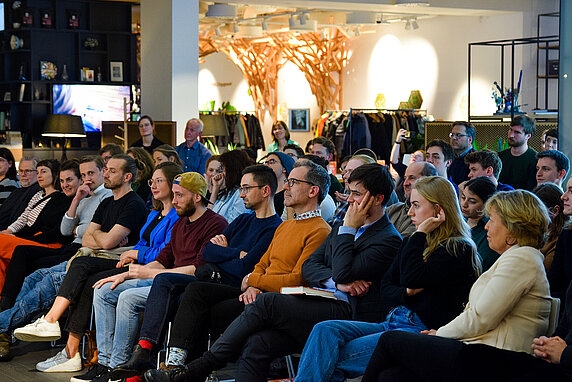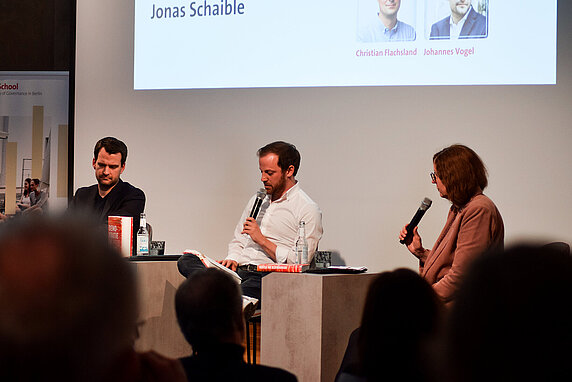Jonas Schaible discusses his book Demokratie im Feuer at the Hertie School.
Is liberal democracy up to the task of fighting climate change? What will happen if isn’t? This was the topic of a panel discussion on 17 April hosted by the Hertie School and Penguin Random House Verlag. At the event, journalist Jonas Schaible discussed his new book Demokratie im Feuer (Democracy in Fire) with politician Johannes Vogel of Germany’s free democratic party and Hertie Foundation Director Elisabeth Niejahr. Hertie School Centre for Sustainability Director Christian Flachsland gave the opening remarks.
Optimism to prevent a dystopic future
Jonas Schaible kicked off the discussion with a passage from his book, which gave a glimpse of a possible dystopic future: constant forest fires, water rationing, militarised borders and restricted civil liberties. “We’re on the brink of a watershed moment,” said Schaible. “We might soon be facing a climate that no human being has experienced before.” But he made clear that he is not predicting the apocalypse: “It’s not the survival of humankind that we’re talking about – it’s the loss of liberal democracy.” When asked for his thoughts on this, liberal politician Johannes Vogel said he was confident that liberal democracy will be able to prevent this future, but he stressed that it would only be successful with optimism. “It’s not wise to paint a gloomy picture and say that things will be bad no matter,” he argued. “I am and will remain an optimist.”
An autocracy will not do better
In his book, Schaible refutes the idea that an autocracy would be able to take more effective action on climate change. Responding to Niejahr’s suggestion that China is more effective in combatting climate change, Vogel commented that “objectively, China has made some accomplishments, but they are linked to arbitrariness.” He added that in the long run, “there’s nothing to suggest that China will do any better at managing the climate crisis than liberal democracies.” He was equally sceptical that a dictatorship would do better anywhere else: “If an autocrat comes to power promising to protect the climate, who knows if they will really keep that promise?” The liberal democrat stressed that freedom is the key to fighting climate change: “People want to live in freedom, and they want to ensure this freedom for generations to come.”
Making democracy fit to face the challenge
To conclude the discussion, Niejahr asked Schaible what he thought were the best measures democracies could take to tackle the climate crisis. He stressed that public administration needed to be strengthened and that think tanks should play a more prominent role in the politician process. He also suggested anchoring climate action in the constitution. While he considered this difficult to implement, he argued that it would create a powerful legal tool to combat climate change. Vogel agreed with Schaible’s suggestion with the justification that “we must protect liberal democracy for future generations.” In addition to Schaible’s ideas, he argued that CO2 certificates are a useful way to bring down emissions, and he strongly advocated a cap on carbon emissions. Despite criticising the FDP for dragging its feet on climate policy in Germany’s Federal Ministry of Transport, Schaible agreed with Vogel that alienating potential allies in the fight against climate change is unproductive. “Friend-foe thinking will get us nowhere,” Schaible said.
Find out how researchers at the Hertie School’s Centre for Sustainability are contributing to the debate.
Contact
-
Benjamin Stappenbeck, Director Communications

